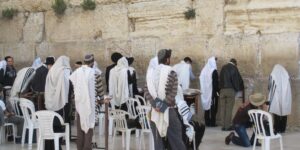DOMA Plaintiff: Marriage Is a ‘Magic’ Word
While public support for gay marriage has shifted over the last several years, the laws on the books tell a different story.
Thirty states have laws banning same-sex marriage. Only nine states and the District of Columbia allow it.
The Supreme Court’s second look at the issue focused on the constitutionality of the federal Defense of Marriage Act, or DOMA. The 1996 statute says the federal government only recognizes marriage as “a legal union between one man and one woman as husband and wife.”
On Wednesday, the justices heard 83-year-old Edie Windsor’s challenge to the law. She says the government treated her unfairly when she had to pay $360,000 in estate taxes after the death of her same-sex partner of 44 years – taxes a heterosexual spouse wouldn’t have to pay.
After her day in court, she told supporters why it’s important for the court to recognize the marriages of gays and lesbians, and she said that word “marriage” is the key.
“It’s a magic word,” she said. “For anybody who doesn’t understand why we want it and why we need it, it is magic.”
Windsor seemed optimistic the high court would strike the law down.
“I felt we were very respected, and I think it’s going to be good,” she said
While some states recognize the gay and lesbian marriages, the federal government does not under DOMA, and that can be very important. That’s because marital status affects more than 1,100 federal laws, from taxes to Social Security to health benefits for federal employees.
What’s Really at Stake
But opponents say much more is at stake in when it comes to DOMA and the other case before the Supreme Court – Proposition 8, California’s voter-approved measure that supports traditional marriage.
Opponents say legalizing same-sex marriage will not only redefine marriage itself, it will also threaten the traditional family.
“God gave us the gift of marriage between one man and one woman because through them life is born and that’s the way God created us to be,” Sister Bernadette Morse said.
Opponents also say gay marriage will jeopardize the religious freedoms of individuals, churches, businesses and even some of those called to serve their country in the military.
“It puts at risk the religious liberties of duly authorized clergy and particularly those who are under the authority of the federal government, such as the hundreds of military chaplains in this country,” Rev. Rob Schenck, chairman of the Evangelical Church Alliance, said.
The court is not expected to make its decisions until June. While it appears the high court may strike down DOMA, it has surprised observers before.
In the meantime, some believe whatever the decision it’s important to bridge the growing national divide.
“I think it’s important that we find ways, as those supporting same-sex marriage, to reach out in conversation to those opposing it,” Rev. Gary Hall, dean of Washington National Cathedral, said.
That conversation is likely to continue, especially if the court decides not to decide.
When the dust is settled and the crowds are gone, the court could ultimately choose to side step a controversial ruling based on standing, a legal technicality. If it chooses to do so, the debate over marriage, both legally and morally, will certainly continue indefinitely.







































